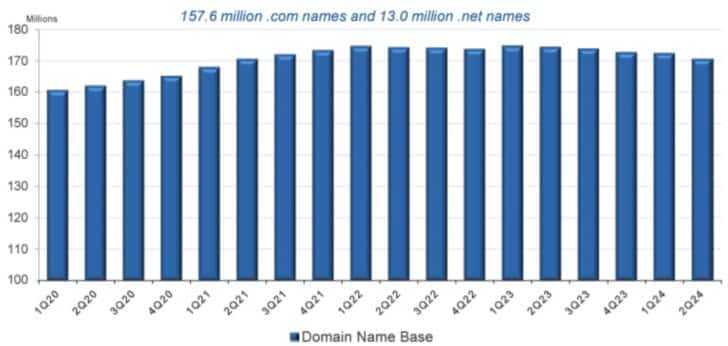The judge doesn’t buy the plaintiff’s argument, but gives it one last chance.

A judge overseeing a cybersquatting lawsuit over trx.com has given the domain owner a partial victory.
The story is a bit complicated, so let’s rewind a bit.
Background
Loo Tze Ming bought the domain name trx.com for $138,000 in April 2022 at domain marketplace 4.cn.
In October 2022, Fitness Anywhere LLC, a company going through bankruptcy that claimed rights in TRX, filed a cybersquatting claim under UDRP. The following month, the panelist awarded the Complainant the domain name in a controversial decision.
Ming overlooked the dispute notice and didn’t respond, so he sued Fitness Anywhere in Arizona to stay the transfer.
Then, in February 2023, a company called JFXD TRX ACQ LLC, which described Fitness Anywhere as its predecessor in interest, filed an in rem lawsuit against trx.com in Virginia, where the .com registry is based.
Given the ongoing suit in Arizona, it was odd that JFXD TRX filed an in rem suit against the domain name because it knew who the domain owner was and how to contact him.
Ming successfully petitioned the court to move the in rem case to Arizona, where he filed his original lawsuit.
Moving the case was key because Arizona is in the Ninth Circuit. There’s precedent in the Ninth Circuit that the original registration date of a domain is the relevant date for a case under the Anticybersquatting Consumer Protection Act (ACPA).
Trx.com was registered in 1999. The plaintiff got trademark rights in the second-level domain term TRX sometime after that, and then Ming bought the domain years after the trademark was established. However, according to the Ninth Circuit, because the original registration in 1999 predated the plaintiff’s trademark rights, the plaintiff can’t win.
The judge demands clarification
In January, the judge overseeing the case asked JFXD TRX to explain a couple of things.
First, he asked how, under Ninth Circuit precedent, a domain registered in 1999 before it got trademark rights violates the ACPA.
Second, he asked for clarification on the relationship between Fitness Anywhere and JFXD TRX.
The relationship between the parties is interesting. The plaintiff’s lawyer, Alain Villeneuve, has represented both Fitness Anywhere and JFXD TRX. But there’s confusion about which entity owned the trademarks and at what time. The judge wrote (emphasis mine):
The filings in this case, as well as the filings in the case pending before Judge Logan [the case Ming filed to stay the UDRP transfer], show some confusion regarding the current owner of the TRX-related property and the proper defendant for Ming’s challenge to the order transferring trx.com. According to statements made by Mr. Villeneuve, Fitness Anywhere owned all TRX-related property, including the TRX trademarks, until it sold that property to JFXD in August 2022. Despite no longer owning any TRX-related property, in October 2022 Mr. Villeneuve initiated a domain name dispute proceeding on behalf of Fitness Anywhere. During those proceedings Mr. Villeneuve stated Fitness Anywhere was “the owner of the famous trademark TRX.” That administrative proceeding resulted in an order that trx.com be transferred to Fitness Anywhere. If Fitness Anywhere no longer owned the TRX-related property prior to the administrative proceeding, it would appear the transfer order was improper. If, however, Fitness Anywhere did own the property and continued to own the property, Ming’s claims against Fitness Anywhere pending before Judge Logan are the proper avenue for resolving ownership of trx.com. In that situation, however, JFXD’s current complaint is improper because JFXD does not own the TRX-related property. In explaining why its complaint does not state a claim for relief, JFXD must explain the conflicting positions adopted by Mr. Villeneuve. In particular, JFXD must explain whether Fitness Anywhere owned any TRX-related property at the time Mr. Villenueve stated Fitness Anywhere “is the owner of the famous trademark TRX.”
JFXD TRX’s response
JFXD TRX twisted itself into knots trying to explain (pdf) how the 2022 sale of the domain trx.com is a new registration and thus should be considered cybersquatting.
Frankly, its arguments are incoherent in many places. Many of the sentences are missing words. It conflates a registrar selling a domain with a marketplace brokering a domain. It makes a strange argument about the domain “falling to the public domain.” And it says that the value of .com domains is “plummeting” because there are other top-level domains available, which makes one wonder why it’s so important that the company get the .com domain.
It seems that the plaintiff is arguing that the original registration expired and Ming subsequently registered the domain. But the plaintiff doesn’t spell out how this happened (perhaps because it didn’t.)
I’m not the only person confused by the response.
The judge noted, “The Court cannot understand large portions of Plaintiff’s response and it is not clear whether this is, in fact, Plaintiff’s argument [that the domain expired and was subsequently registered]. Liberally construed, however, Plaintiff is arguing the registration of trx.com expired on some date after the TRX trademark purportedly owned by Plaintiff came into existence.”
The Plaintiff’s response shows an incredible lack of understanding of the domain name system. Consider this argument:
FURTHER EVIDENCE A REGISTRAR OWNS THIS URL
Mid 2022, Plaintiff looked if the URL was available for $19.99 on GoDaddy®. It was not. GoDaddy LLC offered a paid broker service for $69.99. Plaintiff gladly paid. What happened next is worthy of a fiction book. Within the hour, an excited private agent called saying he was from the GoDaddy brokerage. There was a smell of money in the air, the same vibe as entering a used car showroom. The GoDaddy [sic] refused to contact the owner to simply see if it was willing to sell. The WHOIS had listed “au tuu” from Iceland and Plaintiff’s previous efforts never worked. The agent was forceful and explained the URL was “worth millions” and tried to bully Plaintiff in giving an initial seven number initial offer. Plaintiff, pushed back saying a broker should not have an incentive to raise prices and online tools priced this, at most, in the mid five figures. The exchanges were so forceful, Plaintiff reported the misconduct to GoDaddy LLC who then magically assigned a new broker. The second agent was in shock and did not know who the first agent was and what had happened.
So, the plaintiff hired a registrar’s domain buying service that charges a fixed fee plus a commission. And it was surprised when the broker got excited?
It sounds like a boring fiction book to me.
In its response, the plaintiff simply ignored the judge’s request that it explain the relationship between Fitness Anywhere and JFXD TRX and who owns the intellectual property.
The judge rules in favor of Ming
Yesterday, the judge in the case issued (pdf) an order in favor of Ming. He said the plaintiff could file an amended complaint if it could somehow show that the domain expired and was registered anew by Ming.
But the judge said that any such filing can’t ignore the question he asked earlier about what’s going on with the entities in this case. The response is important because it could show that the Complainant in the UDRP didn’t actually have the trademark rights it claimed.
Post link: Judge gives TRX.com owner a win in court battle
© DomainNameWire.com 2023. This is copyrighted content. Domain Name Wire full-text RSS feeds are made available for personal use only, and may not be published on any site without permission. If you see this message on a website, contact editor (at) domainnamewire.com. Latest domain news at DNW.com: Domain Name Wire.


